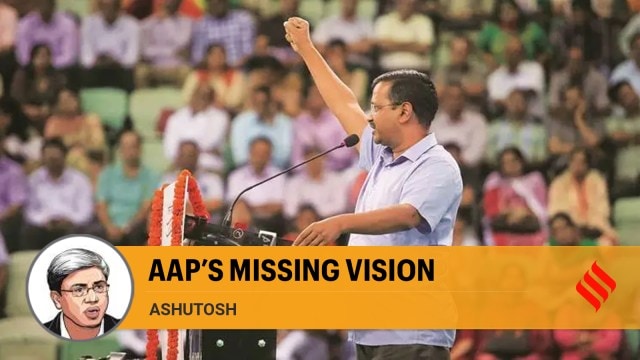
Revolutions have many shades. But their essential feature is disruption. From the French Revolution to the October Revolution, old establishments were led to their destruction with a delinking from the past for the construction of the future. The 2011 movement led by Anna Hazare and Arvind Kejriwal was nothing less than a revolution. So, when it transformed into a political party, the Aam Aadmi Party earned the confidence of the people, with the party forming governments in two states in a short span, defeating a century-old political party.
The AAP is no ordinary phenomenon. But this election has proved again that it is still not considered a national player. It is intriguing that the AAP, despite having an overwhelming presence in the assembly elections in Delhi, has failed to win a single seat in parliamentary elections in the national capital three times in a row. It drew blanks in 2014, 2019 and 2024. The BJP has swept all seven seats in Delhi since 2014.
In this election, the AAP was hopeful that it would be able to win at least two seats, given its alliance with Congress. Yet, the combined share of votes is about 43 per cent, much less than the BJP’s 54 per cent. In 2019, the AAP and Congress contested separately and surprisingly, the former was third in terms of vote share. Congress did better in 2019. Curiously, just six months later, in the assembly elections, the AAP improved its vote share three times over and won 54 per cent of the votes and 62 seats out of 70 in Delhi.
In 2014, too, the AAP was no match to Modi’s juggernaut in the Lok Sabha elections. This was when the AAP was considered a national alternative. It contested more than 400 Lok Sabha seats but lost all but four in Punjab. At its peak, it could get only 33 per cent of the votes to BJP’s 52 per cent and failed to win a single seat. But six months after the parliamentary elections, it won 67 assembly seats out of 70.
The Punjab story is slightly different. In 2014, the AAP won four seats; in 2019, it was reduced to one seat and in these elections, it won three against Congress’s seven. It had a good start in Punjab with four seats and 24 per cent of the votes but its performance in 2019 and 2024 has been anything but good. In 2019, its vote share nosedived to 7.46 per cent. In 2024, it increased to 26 per cent, with the AAP winning three seats. But this pales in comparison to its performance in the 2022 assembly election when it won 92 seats and 42 per cent votes. This is after the AAP stunned many by forming the government in Punjab. Congress was almost decimated but surprisingly, it had done better than the AAP in 2019 when it won 8 seats and in 2024 when it managed seven seats.
Here emerges a pattern. The AAP contested 22 seats in total this year. Other than Delhi and Punjab, it put up candidates in Assam, Haryana and Gujarat. It improved its national vote share from 0.44 per cent to 1.11 per cent this year. It has been recognised as a national party (many voters’ perception, notwithstanding).
But despite the arrest of the AAP’s top leader Arvind Kejriwal on the eve of the election and his release on bail to campaign for the party, the AAP failed to move the voter. These are not encouraging signs. It seems voters expect much more from the AAP in the general elections. Its failing is that even 12 years since inception, it has not presented a vision document for the country; nobody knows what the AAP’s economic, foreign and defence policies are. The AAP had promised to change politics; it spoke against dynasty politics and opposed high command culture. It talked about making governance transparent, democratic and decentralised. Today, it has turned into an opaque organisation and highly-centralised governance is its hallmark.
In this context, it can be said that a revolution that promised to radically change the system, has surrendered to it. Its national future looks less encouraging unless it does course correction.
The writer, a former member of AAP, is co-founder of SatyaHindi and author of Hindu Rashtra
Click here for real-time updates on the Lok Sabha Election Results 2024
© The Indian Express Pvt Ltd
First uploaded on: 06-06-2024 at 07:50 IST


